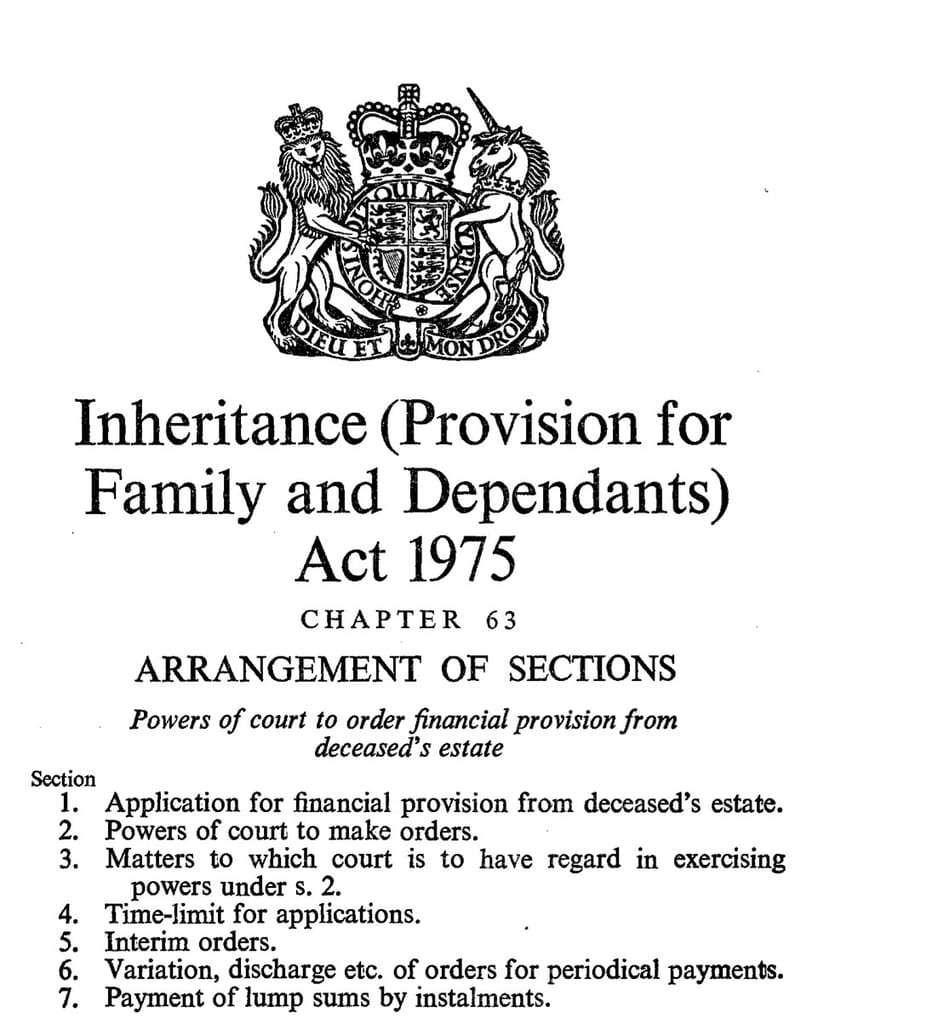
Likewise, if you do not wish to include someone in your will who might expect to be included, you need to be aware that they may bring an Inheritance Act claim against your estate.
Who can bring a claim?
Only those listed in s1 of the Inheritance Act can bring a claim and they are;
- Spouse or former spouse
- A child of the deceased or any person treated by the deceased as his/ her child
- A cohabitee who has been living with the deceased as ‘man and wife’ or civil partners for a period of at least 2 years prior to death
- A person financially supported by the deceased immediately prior to their death.
Claims can only be bought under the Inheritance Act if the deceased died domiciled in England and Wales.
What is the claim for?
The claim is a financial claim for ‘reasonable [financial] provision’. A person bringing a claim must first show that reasonable financial provision was not made. If this is accepted, the court will consider what reasonable financial provision might be. A spouse is given special status under the act and can expect a higher level provision – whereas other claimants are limited to reasonable provision ‘for their maintenance’; a spouse is not so limited.
What might constitute reasonable provision will depend upon the facts of each case but will include factors such as the size of the estate, the needs of the claimant and the financial needs of anyone else benefiting from the estate.
Do the wishes of the deceased matter?
There can be many reasons for not including someone in a will – relationship breakdown, a desire to benefit someone else who the testator feels has greater need etc. If those reasons are clear and rational, will they be ignored if a claim is bought under the Inheritance Act? The short answer is that whilst a court will consider the deceased’s wishes as part of the overall evaluation of the claim, they are not bound by the deceased’s reasons or wishes and can make an order for provision regardless. It is a good idea to write a clear statement of reasons if making a will which is likely to prove controversial, not least as this may help defend other claims against a will such as incapacity or undue influence, but however clear and rational the reasons, the statement is not likely to be decisive in isolation.
Talk it over
with an expert
with one of our friendly and professional team
